
You may be aware by now of the brewing battle between Amazon and both publishers and bookstores. A new Tumblr – Against Amazon – lays it all out. On the one hand, it doesn’t fill one with great sympathy to see one profit-driven corporate giant being driven out of business by another, but in the digital age it’s indie bookstores that suffer the most. A recent Slate piece with a title that’s designed to get under people’s skin – Don’t Support Your Local Bookseller – defends Amazon:
Compared with online retailers, bookstores present a frustrating consumer experience. A physical store—whether it’s your favorite indie or the humongous Barnes & Noble at the mall—offers a relatively paltry selection, no customer reviews, no reliable way to find what you’re looking for, and a dubious recommendations engine. Amazon suggests books based on others you’ve read; your local store recommends what the employees like. If you don’t choose your movies based on what the guy at the box office recommends, why would you choose your books that way?
Perhaps I should add a disclaimer here: I’ve done most of my Christmas shopping at Amazon, including books. It’s plainly easier, and frankly more enjoyable – certainly more enjoyable than going to Barnes & Noble during the Christmas rush. Some of the books I bought might be available at a small indie. But taking the trip through L.A. traffic to buy one book here/one book there is not something I look forward to. Advantage: Amazon.
Author Richard Russo came back with this rebuttal (his piece inspired the original Slate article which started this whole thing). He begins by mentioning sales tax:
If you buy the book locally, the sales tax you pay will fund local schools and fill local potholes.
Yeah, that’s something, but I just got hit with a $1200 city tax bill for doing freelance writing out of my apartment. When it comes to taxes: where there’s a will, there’s a way. There is an argument that it’s important to have a thriving book culture in different communities, and not just have everyone’s heads in cyberspace. This is important, but if people are reading more, they’re reading more. Cyberspace is also a culture. It’s not a deal-breaker.
This is the heart of his argument:
How do we explain why so many of today’s movies suck? I think that’s an interesting question in its own right, but it’s even more interesting when posed in conjunction with another. Why is current television so terrific? (Honestly, I don’t know what to say to anyone who thinks the reverse.) I think the reason is pretty simple. Television is great right now because there are so many outlets and so much competition: pay tv, cable, network. Hundreds of channels, all hungry for content. As a result, you find wonderfully well-written, acted, and directed shows everywhere (along with, obviously, all manner of crap). On the other hand, movies suck because the studios that make them have been subsumed by entities that care first about selling things.
Here’s where it gets trickier. It’s a cliche now to say Amazon is the new Wal-Mart. They both have the same effect: shutting down mom and pop businesses. EXCEPT – and this is huge – Amazon also has the KDP store, which means they’ve opened up the amount of creative work that can be produced and consumed. Even a gigantic superstore like Wal-Mart has a limited shelf space. Amazon doesn’t.
Amazon Doesn’t Rule
This may lead you to think: Amazon rules! But Amazon’s driving profit motive could mess with self-publishers as well. People are flocking to KDP Select. David Gaughran puts the numbers at 30,000 in the first week. This is 1/3 of Smashwords’ total library. What happens if those people all have good sales/good lending during their initial 3 month trial? They’ll never go back to Pubit, Kobo, or Smashwords again. It is very much in self-publishers’ long-term interest for there to be a thriving ebook market across many devices. Some are saying – well, that means those other outlets will have to offer better terms in order to compete. Given the massive head start Amazon has, even if B&N offered a 90% royalty it might not be able to make up for the sales volume offered by Amazon. The Kindle Fire – though it’s had a lot of complaints – is the one that gets all the publicity. The Nook doesn’t.

And another wildcard is that the ability of KDP Select authors to offer their books for free means that Kindle owners basically never need to buy a book again. Right now there are more free books than you could ever read in a lifetime. Already, my Kindle sales have gone way down since KDP Select, and I’m not the only one who’s faced this problem. This may be a statistical blip – after Christmas, this may change again. It’s not entirely in Amazon’s interest to not sell titles, but they’re at the stage where they want people to become ebook addicts to help sell more Kindles. Could it be that Amazon is weighting visibility for those authors who are in Select? Even if this is pure paranoia – giving Amazon so much power means they are free to do things just like that.
One thing is pretty certain: more titles in the Kindle store means it’ll be harder to get recognized. And if Amazon has totally corned the market on ebooks, they’ll be free to change their 35% or 70% royalty rate because authors won’t have a choice: everyone who buys ebooks owns a Kindle, so there’s no reason to shop anywhere else. This is the worst-case implication of Select. If people are making a lot of money via Select it’s hard to argue that they should stop, but it may not be in the long term interest of writers overall.
What seems to be missing in the indie bookstore argument is ebooks. Plainly, there’s no need to browse ebooks in-store. They’re built for the web, and after this Christmas there’s going to be a major ebook boom. So it’s terrible, but it’s pretty much old news: indie bookstores are becoming obsolete, and this is not entirely Amazon’s fault. It’s the “fault” of technology. Ebooks are fun and convenient – Amazon didn’t invent this idea, they just perfected the tech. iTunes didn’t “destroy” record stores as some act of malicious capitalism: Apple invented something incredibly useful.
Ironically, self-publishers and traditional publishers may soon be in the same boat. Just as traditional publishers are complaining about the terms demanded by Amazon, it’s quite possible self-publishers might also face the same problem. Amazon has been amazing for self-publishers – but to think that authors are truly “indie” is not really the case: they’re dependent on the whims of a corporate monolith. Amazon could end the ebook gold rush because they own the gold. In the meantime, enjoy the rush, but be wary of giving one company too much control over the industry.
Get an Editorial Review | Get Amazon Sales & Reviews | Get Edited | Get Beta Readers | Enter the SPR Book Awards | Other Marketing Services











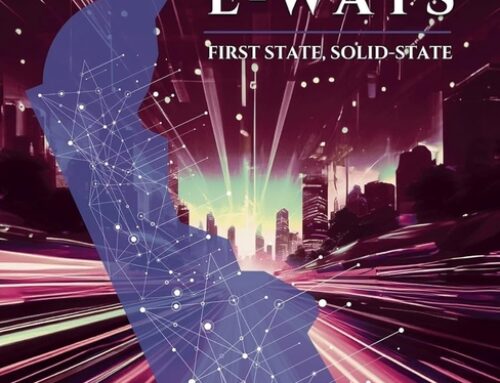


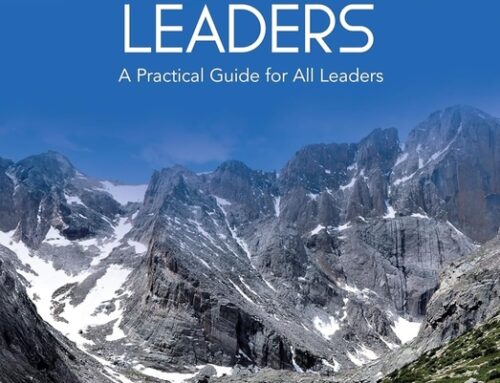
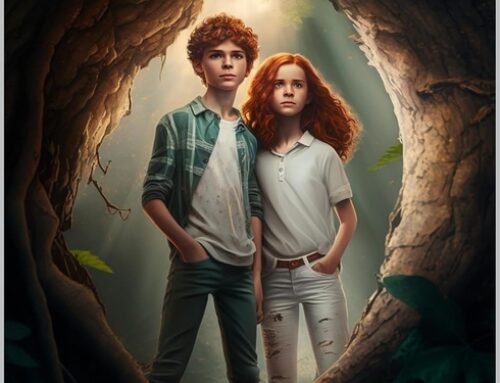

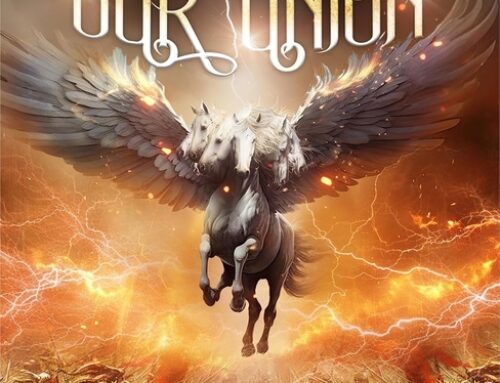
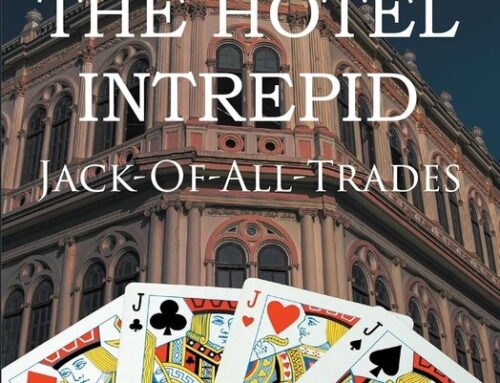



Thanks for the very insightful article. I think in the ever changing publishing world we all need to keep on top of the changes, and that in itself can be a full time job. As a self published author, I thank you for the information and will keep my eye on the ever growing mass of amazon and hope that it will continue to be a cash cow for a good long time.
Amazon, Barnes & Noble and the other self-publishing platforms also provide business opportunities for the little guy. By taking advantage of affiliate marketing opportunities available from most of them, anyone can build their own online bookstore. This gives niche markets – and authors – visibility that’s too expensive to do as a brick and mortar business.
I’m building a bookstore focused on the genealogy and family history market. Self-publishing has made it easy and affordable for individuals to publish their family stories but our market is too small to get much attention from the “bigs”. Their affiliate marketing opportunities allow people like me to spotlight those stories, generate interest and, hopefully, all of us will see a little reward for our efforts.
Except that Amazon is pulling out of states that require it to pay sales tax. States like California and Connecticut maintain that Amazon has an indirect presence in their states due to the existence of affiliates, therefore they must collect sales tax and send it to the states. Amazon responded by cancelling their affiliate programs in those states, thereby nullifying the states’ arguments.
In California, at least, the Nexus law has been put on hold. Putting thousands of affiliate marketers out of work isn’t great for generating revenue either.
Henry, thanks, as always, for the information. I’m opting out of KDP Select, at least until I can see more clearly where it’s going and what advantage it might have for a writer such as myself. I suspect many of the 30,000 authors who opted for KDP Select during its first week did so thinking it could be just the breakthrough they needed. I can’t blame them for that. When I read Amazon’s invitation to enroll my two books, my first thoughts were along those lines. In any event, this is an important development in the independent-author, self-publishing saga. I love what Amazon has done for independent authors, but if it ultimately means we’ve thrown out an oligarchy of six for a dictatorship of one, we’ll deeply regret the day we let that happen.
I’m putting Amazon to the test on Kindle. I dropped the price of the e-book edition of “The Shenandoah Spy” , which has multiple five star reviews, from $9.99 to 99 cents. The print edition sells for $22.50. This is only until January 8, 2012. By then I expect to sell 100,000 copies using social media and e-mail promotion.
I’m doing this because I have my doubts that lower prices increase sales dramatically. I’ve been publishing e-books since 2004 and this has not been my experience, but I am hoping that Amazon Kindle will prove me wrong.
Thank you, Henry, for an insightful and balanced analysis of the situation.
While the bulk of my ebook sales has been on the Kindle, I’m finally seeing progress at the iStore. I’m hoping that Nook readers start showing me some love. I’m holding off on the Select program as I don’t want to alienate potential audiences on other platforms.
Well, I for one was very skeptic over the KDP select. However, out of a moment of madness I pulled one book off Smashwords distribution out of my three fiction novels and opted into the game. Today started my free five-day promotion on my historical romance novel. This morning alone my book has been download by 1,200 individuals within the first 8 hours. I’m suddenly #15 of top best sellers of free downloads for historical romance. I don’t know how else I could have ever received notice among the thousands of books if I hadn’t taken this route! I’m suddenly in front of new readers, who I am desperately hoping will eventually download my other novels that are for sale in the same genre. My hits on my book websites and author websites are increasing too. This will be very interesting to see how this all plays out in the future, but for now I’m extremely happy to finally be noticed among the thousands of authors in this genre.
I’ve opted out of KDP Select. I’m not interested in a payment from a collective pool. I prefer to be paid directly by the people who want to read my work. I was interested in the possible publicity offered by Select, and as Vicki Hopkins notes, it’s done well for her.
Running numbers, though, I decided that while people in early may benefit, KDP Select market is set up in a similar fashion to a pyramid scheme, where the small numbers of participants in the beginning benefit, and the large numbers of participants at the end get buried.
And I didn’t want to associate myself with that, either.
Finally, and I should have added this to my previous post, I am publishing via Kindle, Nook, and iBookstore, and not interested in dropping any of the three, or doing something that will hurt one of the other two markets.
My experience with KDP Select went as follows. My Kindle book, “Band On The Run” had sold a half-dozen or so copies in 3 or four months. I enrolled in the program and offered the book for free the following weekend. It rose to #2 on the free humor bestseller list and stayed there. I opted for one more free day, Monday. During that time my book was downloaded 8900 times. It is now Wednesday, and the book has sold 45 copies at .99 (my original price) and I have two new and very useful reviews. I’m currently #10 on the Amazon Music chart (paid) for Kindle. The ability to offer free promotional copies was just what my book needed!
Good for you Matt! The end results of my promotion were priceless. My five day free run shoved me into the #8 best seller in historical romance. I had over 6,200 copies downloaded. Since the five-day promotion, it has increased my sales on all levels. I’ve had increased hits on my website, increased positive reviews, comments on Facebook, etc. The effect of giving away one book has increased interest in my three others. For me it was well worth it to finally get noticed and read and it cost me nothing to do so. I often get angry at Amazon for some of their tactics, but frankly, after I stopped squawking long enough over this, it turned out to be a positive experience. When my three-month end ends on March 15th, I’ll redistribute the book once again through Smashwords to B&N and elsewhere. It was a good experiment.
Thanks Vicki! I’m glad that you saw a similar boost. I’ve had such low sales on other platforms that I think I’ll remain in KDP indefinitely. It really works great if you have one book you can give away, while keeping your other books for sale. Considering that millions of people own Kindles, I believe that these giveaways will result in similar results if done months apart.
My experience on KDP select was different. I put my latest book (Meeting the Mystery: http://amzn.to/AhSCRf) up there as an experiment, and then made it free for a long weekend. I had over a thousand free downloads, and then once it was priced at $2.99 again sales fell off quickly. I did not notice any appreciable increase in sales of my other books. My experience may have been different because of my books genre: self-help/spiritual non-fiction.
I also have not had many people borrow my book in the first two months. I wonder if people are choosing not to borrow a $2.99 book and are choosing instead to to use their one free borrowed book a month on a higher priced book. That would make sense to get the higher priced book for free.
Anyways, I will be taking it out of KDP Select at the end of the three months and putting it up on Smashwords with all of my other books.
Nirmala, I am getting similar results now. Amazon has apparently changed the way they calculate sales in relation to giveaways.